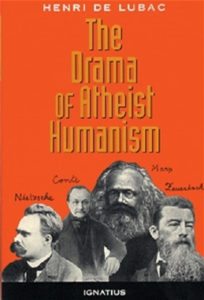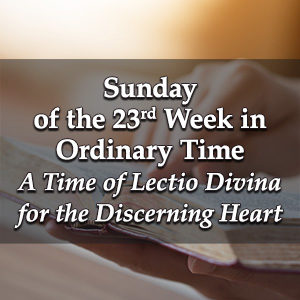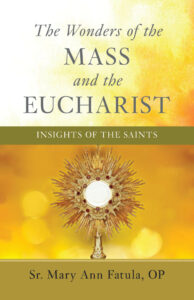Podcast: Play in new window | Download (Duration: 4:25 — 3.1MB) | Embed
Subscribe: Apple Podcasts | Spotify | Amazon Music | Android | Pandora | iHeartRadio | JioSaavn | Podchaser | Gaana | Podcast Index | Email | TuneIn | Deezer | Anghami | RSS | More
Part 3 – Chapter 37 of the Introduction to the Devout Life by St. Francis de Sales
This is a Discerning Hearts recording read by Correy Webb
PART 3 – CHAPTER XXXVII. Of Wishes
“EVERYBODY grants that we must guard against the desire for evil things, since evil desires make evil men. But I say yet further, my daughter, do not desire dangerous things, such as balls or pleasures, office or honour, visions or ecstacies. Do not long after things afar off; such, I mean, as cannot happen till a distant time, as some do who by this means wear themselves out and expend their energies uselessly, fostering a dangerous spirit of distraction. If a young man gives way to overweening longings for an employment he cannot obtain yet a while, what good will it do him? If a married woman sets her heart on becoming a religious, or if I crave to buy my neighbour’s estate, he not being willing to sell it, is it not mere waste of time? If, when sick, I am restlessly anxious to preach or celebrate, to visit other sick people, or generally to do work befitting the strong, is it not an unprofitable desire, inasmuch as I have no power to fulfil it? and meanwhile these useless wishes take the place of such as I ought to have,—namely, to be patient, resigned, self-denying, obedient, gentle under suffering,—which are what God requires of me under the circumstances. We are too apt to be like a sickly woman, craving ripe cherries in autumn and grapes in spring. I can never think it well for one whose vocation is clear to waste time in wishing for some different manner of life than that which is adapted to his duty, or practices unsuitable to his present position—it is mere idling, and will make him slack in his needful work. If I long after a Carthusian solitude, I am losing my time, and such longing usurps the place of that which I ought to entertain—to fulfil my actual duties rightly. No indeed, I would not even have people wish for more wit or better judgment, for such desires are frivolous, and take the place of the wish every one ought to possess of improving what he has. We ought not to desire ways of serving God which He does not open to us, but rather desire to use what we have rightly. Of course I mean by this, real earnest desires, not common superficial wishes, which do no harm if not too frequently indulged.
Do not desire crosses, unless you have borne those already laid upon you well—it is an abuse to long after martyrdom while unable to bear an insult patiently. The Enemy of souls often inspires men with ardent desires for unattainable things, in order to divert their attention from present duties, which would be profitable however trifling in themselves. We are apt to fight monsters in imagination, while we let very petty foes vanquish us in reality for want of due heed.
Do not desire temptations, that is temerity, but prepare your heart to meet them bravely, and to resist them when they come.
Too great variety and quantity of food loads the stomach, and (especially when it is weakly) spoils the digestion. Do not overload your soul with innumerable longings, either worldly, for that were destruction,—or even spiritual, for these only cumber you. When the soul is purged of the evil humours of sin, it experiences a ravenous hunger for spiritual things, and sets to work as one famished at all manner of spiritual exercises;—mortification, penitence, humility, charity, prayer. Doubtless such an appetite is a good sign, but it behoves you to reflect whether you are able to digest all that you fain would eat. Make rather a selection from all these desires, under the guidance of your spiritual father, of such as you are able to perform, and then use them as perfectly as you are able. When you have done this, God will send you more, to be fulfilled in their turn, and so you will not waste time in unprofitable wishes. Not that I would have you lose any good desires, but rather treat them methodically, putting them aside in one corner of your heart till due time comes, while you carry out such as are ripe for action. And this counsel I give to worldly people as well as those who are spiritual, for without heeding it no one can avoid anxiety and over-eagerness.”




 You can find the book
You can find the book 



 Sunday of the Twenty-Third Week in Ordinary Time – A Time of Lectio Divina for the Discerning Heart Podcast
Sunday of the Twenty-Third Week in Ordinary Time – A Time of Lectio Divina for the Discerning Heart Podcast


 The
The Dr. Lilles talks about the nature of vocal prayer, the prayer of meditation, and the prayer of recollection.
Dr. Lilles talks about the nature of vocal prayer, the prayer of meditation, and the prayer of recollection.


 Lord Jesus, merciful Face of the Father, you came to give us the Good News of the Father’s mercy and tenderness.
Lord Jesus, merciful Face of the Father, you came to give us the Good News of the Father’s mercy and tenderness.